11 Entrepreneurs Who Broke All the Rules-and Achieved Great Success Rules are made to be broken, right? Take inspiration from these founders, who trusted their gut and reaped the benefits.
This story appears in the March 2019 issue of Entrepreneur. Subscribe »
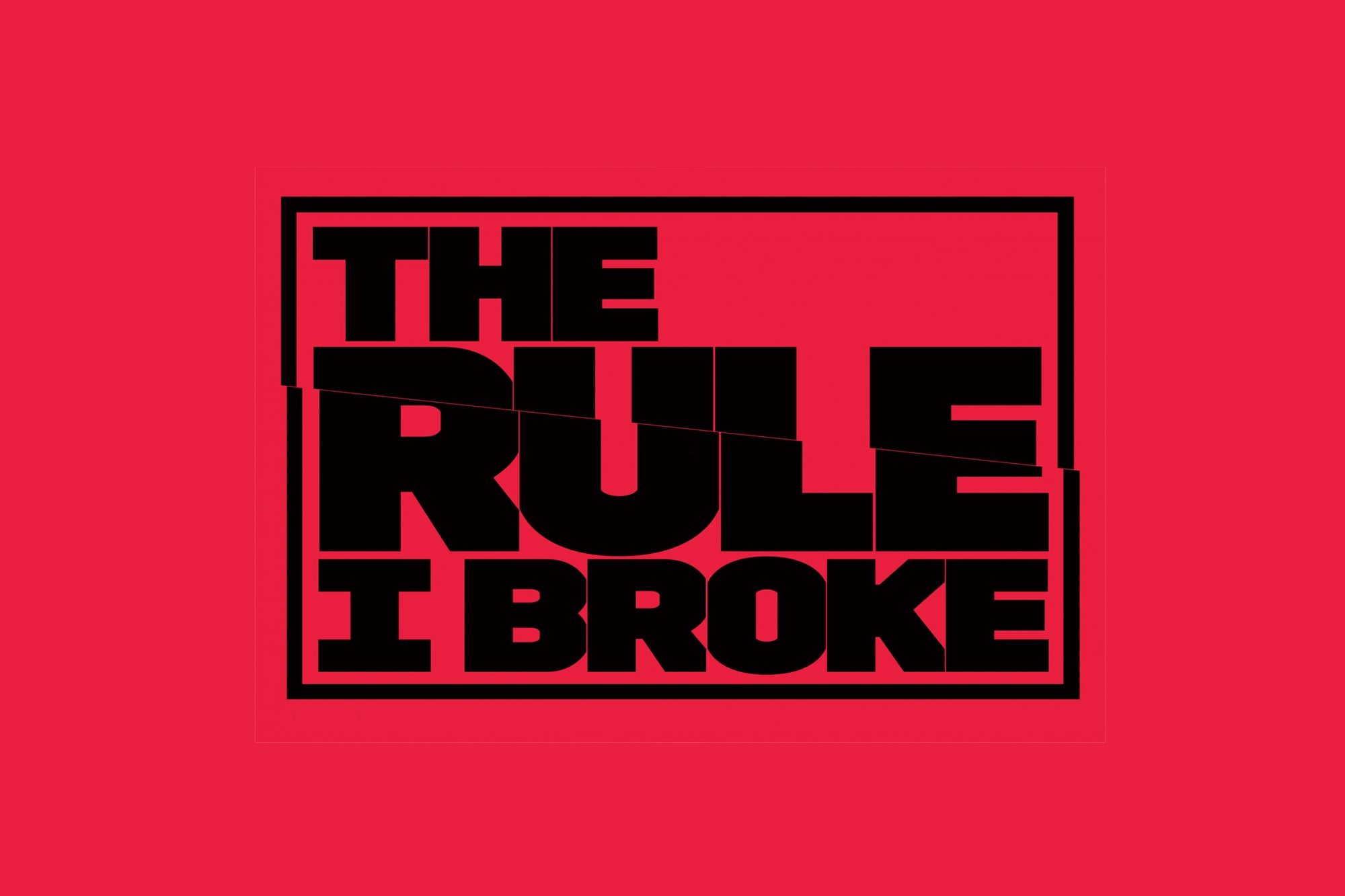
There's an old saying that floats around the internet, always popping up in those collections of inspirational phrases: "Learn the rules like a pro so you can break them like an artist." Did Pablo Picasso say it? The Dalai Lama? Alexander McQueen? All have been cited as the source, but whatever -- its origin doesn't matter. It endures because it's true.
Entrepreneurs are rule breakers, too, but the smartest among us know that you don't go smashing windows just because. We don't break rules for the fun of it. We break rules when we understand the systems that created those rules -- and then, with careful thought and steely resolve, we can see bending that system to our will. We learned the rules. We know what we're doing. And that's why, when the time is right, we don't follow them.
Related: Why It Pays to Break the Rules at Work
Here, we offer a celebration of rule breakers. And unlike that quote above with the cloudy origin, these words of inspiration are fully attributable: Eleven entrepreneurs tell us how they built their businesses by ditching the old ways. Learn from them -- and then, when you see fit, go do something else entirely.
Chris Stang
Cofounder and CEO: The Infatuation
Rule Broken: Follow what your industry does
In 2014, when most digital publishers knew only one way to build an audience, Chris Stang and his cofounder, Andrew Steinthal, chose a very different path: They started sending text messages.
The guys had left their music-industry marketing and PR jobs to launch a digital restaurant guide called The Infatuation. The conventional content playbook at the time called for building a big Facebook audience, then flooding it with content. Facebook, after all, drove most content sites' traffic. "That seemed to be a very bad way to build a resource for people," Stang says. The guys didn't want to give Facebook that much control over their audience, and they worried they wouldn't learn much about their users based on those clicks.
Related: What Happened When I Broke the Rules of Entrepreneurship
What to do instead? Eventually, they launched a product called Text Rex. Users could text a number with a restaurant question ("Where can I take my wife for Italian in the East Village?") and an Infatuation staffer would reply with a recommendation. Users' questions turned out to be invaluable insights. Now The Infatuation knew exactly what people wanted and could build content to match.
"It made us very good at serving the community with recommendations, and it also made us rank much higher in search results," Stang says. Today, Facebook's algorithm change has hurt all publishers' traffic, and less than 4 percent of The Infatuation's traffic comes from Facebook -- but the brand has expanded to 35 cities and bought Zagat, the once dominant restaurant-recommendation brand. "Facebook can change their algorithm all they want," Stang says. "We'll just keep doing what we do."
Jenny Fleiss
Cofounder and CEO: Jetblack (and previously, cofounder, Rent the Runway)
Rule Broken: Have a detailed business plan
When cofounders Jenn Hyman and Jenny Fleiss began fund-raising for Rent the Runway back in 2009, they would have horrified any MBA professor -- because they didn't have a formal business plan. No problem: To date, their dress-rental service has raised more than $210 million in venture capital. That success prompted Fleiss to take a similar freewheeling approach to her next venture, Jetblack, a mobile digital shopping service that launched last June within Store No. 8, Walmart's incubation arm. Planning is overrated, explains Fleiss.
What's wrong with writing out a long-term strategy?
The mistake of a business plan is that it can make you less nimble. You're not going to have everything figured out from day one, and you might be less inclined to tweak or change aspects of your business, because you've already locked into your model.
How do you raise money without a business plan?
When Jenn and I started working on Rent the Runway, we purchased some dresses and launched a pop-up where we could collect data and do video interviews. The first woman who walked in put on a gold-sequined dress, twirled around, and said, "I look hot." That's the most powerful piece of our business, and with video, we were able to show that in ways male VCs otherwise couldn't have related to. Second, gathering data was a testament to our hustle. That was game-changing in our ability to fund-raise.
How did you explain the profit model?
I've seen plans that are 60 or 80 pages. We had a lean PowerPoint deck with about 15 slides. It had our preliminary financial model, unit economics, a few other things. But we edited them on the fly. It was a living, breathing process.
Did your strategy change with Jetblack?
Not much. We began by talking to consumers. There still isn't a business-plan document.
Ajeet Singh
Cofounder: ThoughtSpot
Rule Broken: With founders, two is company, three's a crowd
Ajeet Singh and his cofounder, Amit Prakash, refused to settle for midlevel engineers. To build ThoughtSpot, an ambitious AI-powered analytics platform with Google-like searchability, they'd need industry-leading talent across a variety of fields. Singh's background is in launching enterprise software, and Prakash is a machine-learning expert. In addition they needed top minds in search infrastructure, cluster management, business intelligence, and more. "It was all about recruiting the best people in the world," says Singh.
Related: Why You Need to Think Outside the Box
The problem? "These are people who are making $1 million to $2 million a year," he says. To help incentivize top talent to join the new, still unproven venture, Singh and Prakash offered company ownership and a cofounder title. Over six months in 2012, Singh interviewed 50 to 60 people and took on five of them, so by the time he was done, he'd assembled a team of seven cofounders.
ThoughtSpot is now worth more than $1 billion. "A large cofounding team can be a problem," says Singh. "But we know when to defer to each other, and when we do disagree, we do it with respect."
Charlotte Cho
Cofounder: Soko Glam and Then I Met You
Rule Broken: Leverage your community for sales
Charlotte Cho is considered the authority on Korean beauty products, which is a very valuable thing to know about. The industry is enormous, and her company, the e-commerce marketplace Soko Glam (and its associated blog, The Klog), is on track to hit $100 million in revenue this year. In sum, Cho and her company are Korean-beauty-industry hit-makers.
But in 2018, when Cho launched her own skincare line, called Then I Met You, she had one rule: It would not be sold on Soko Glam. Which is to say, she wouldn't use the massive sales platform she built to support her new company. Plenty of people told her she was crazy, but she believed in an idea bigger than sales: authenticity. The skincare line isn't technically a Korean beauty product (the company is U.S.-based), and she didn't want her Soko Glam audience to feel deceived. "Then I Met You is built on the Korean concept of jeong, which is a deep, emotional connection that forms over time," Cho says. "It's sentimental. I want the brand to live on its own and find its community, rather than get lost on Soko Glam."
Instead, she paved a path for her new brand. She leveraged existing relationships with influencers, which helped Then I Met You collect more than 10,000 Instagram followers before it even launched. When it did debut, sales were brisk…and within 24 hours, multiple retailers had approached Cho about distribution. She turned them down. "We're starting a conversation with our customer," she says. "It's important that we remain in control of that conversation."
Carlos Watson
Founder and CEO: OZY
Rule Broken: Stick to the schedule
Carlos Watson lets no calendar hold him down. "As the founder of a young company, I know how hard and special it is to get the right people in the room," says Watson, a former MSNBC news anchor whose company, OZY Media, has become known for its massive annual OZY Fest in New York and its growing stable of TV shows. "When that happens, you can't be so tied to your schedule that you're afraid to go deep." With our busy days, he says, people often don't give great ideas the focus and attention they deserve -- so if he's on an important roll with someone, he says, he'll sometimes order in food and treat the moment like an intellectual hackathon. As a result, he's moving his calendar around on the fly every day (including, let it be said, the day of his original interview with Entrepreneur!). "That's not always easy, and that's not always pretty, but it's the only way to get something to a full place of development," he says. "Ignore your schedule and win the moment."
Andrew Ofstad
Cofounder: Airtable
Rule Broken: Just get out an MVP -- quick, quick!
The prevailing wisdom in Silicon Valley is that by moving fast to launch a minimum viable product (MVP), you can generate buzz, harvest feedback from customers, and begin working out the kinks in your idea. Airtable took a slower approach. Rather than rush to market, the company spent three years developing the collaborative workflow software that finally launched in 2015. And the wait was worth it: Last year the company hit $20 million in revenue and raised $100 million in Series C funding. Andrew Ofstad, one of the cofounders, explains the wait.
Why the long development period?
There's a lot of overhead that comes with customers. Once you launch a product, you have to grow the support team, pay for marketing, and scale your servers. We wanted to focus on the product-and-engineering side instead. Also, the cost for getting it wrong was high for us, because people would be using our product for their core business workflows. If we mess up and lose somebody's data, or we're down for two hours, that could lose a ton of business for somebody.
Was there pushback from your investors?
There was definitely some pressure. They were like, "Maybe you should hire some more people or launch the product and spend on marketing?" But we would explain our rationale, and they would ease up. Ultimately we were lucky, because our investors trusted us.
Is the lesson that other companies should incubate their products longer?
When I was a product manager at Google, I was measured by the number of launches I did. The thinking was, Let's launch something, get feedback, and see where we go from there. I think that works for simple products where the MVP isn't technically challenging, or if you're just trying to figure out a market. But if you have a long-term vision, and you're convinced that vision will bring value, then it's definitely worth taking your time.
Jeff Raider
Cofounder: Harry's
Rule Broken: Launch light and nimble
In 2013, just after launching their men's-care and shaving brand, Harry's cofounders Jeff Raider and Andy Katz-Mayfield began plotting to buy the 93-year-old German factory that produced their razor cartridges.
The investment would cost $100 million. But at just a month in, Harry's sales were devouring their initial inventory -- the founders had to order more blades, fast. So they decided to swing big. "We saw an opportunity," says Raider. "We could build a new kind of company in the space," one that could grow to meet demand and innovate along the way. "So, as we learned about our customers, we could quickly incorporate their needs into the manufacturing process," he says.
The cofounders raised the money, bought the factory, and initiated expansion efforts that more than doubled their production footprint. Did the gamble work? It seems so: In 2016, Target began carrying Harry's products, and last year the company launched a women's shaving line called Flamingo. And the factory is still growing. "We just bought a piece of land," says Raider. "We're going to build another [manufacturing] structure."
Brian Kelly
Founder and CEO: The Points Guy
Rule Broken: Hide the guts of your business from your customers
How does a company make money? It can be a tricky question if you collect and sell data without consumers' knowledge, or benefit in other ways that consumers never see. That's why, back in 2011, the question gave Brian Kelly a lot of heartache.
At the time, he had a little blog about how to optimize credit card points and frequent-flier miles. It attracted a small and loyal following but barely any advertising revenue. A friend suggested that Kelly start using credit card companies' affiliate links instead: If Kelly wrote about a card and linked to it, and a reader followed that link and signed up, Kelly would get a kickback. He was nervous. "I was wary of becoming the snake-oil salesman," Kelly says. Would readers trust him if they knew he profited from his recommendations?
He decided to try it, but with transparency; he explained the affiliate links at the top of every post. Some readers complained, but most didn't care. And Kelly quickly saw the upside. The affiliate money helped him quit his job to run the site full-time, and he sold it to Bankrate a year later. Now he oversees a staff of 35 writers that reach 8.8 million readers a month, and the affiliate deals have expanded into full-on launch campaigns with major cards. "It's so lucrative, and it allows us to focus on what we do," he says.
From all this, Kelly has taken a lesson: If you trust your users, they'll trust you back. Sure, the occasional person still complains about the affiliate deals, but, he says, "I don't even need to respond anymore. An army of readers will say, "Duh; that's the whole point. But we're smart and we can decide what's right for us.' "
Payal Kadakia
Founder: ClassPass
Rule Broken: Launch with a completed product
ClassPass, the platform that lets members automatically book a variety of fitness classes, operates in more than 80 cities around the world, has 400 employees, and has raised $255 million to date. But when it launched in 2013, it intentionally hadn't developed the technology to manage these bookings -- leading to internal chaos. Why? Founder Payal Kadakia explains.
Why put the cart before the horse?
Early versions of our products used sophisticated technology. But they didn't address our customers' needs [which made the tech build-out worthless]. So when we launched ClassPass, I was determined to be absolutely positive we were providing a product people really wanted.
At first you had to manually book some 20,000 reservations?
There were less than 10 of us, practically living on almonds, trying to get this off the ground! But launching without a fully automated back end allowed us to watch customers' behavior. Once we knew precisely what to build, we did.
Brooklyn Decker
Cofounder: Finery
Rule Broken: Where others failed, you might, too
The elevator pitch is "The Clueless closet on steroids" or (for the clueless about Clueless) "Spotify for your clothes." We're talking about Finery, the new wardrobe app that records and helps style everything you own on your phone, and points out what you're missing. It has raised $7 million and counts hundreds of thousands of users. Model, actress, and Finery cofounder Brooklyn Decker explains why her startup will succeed where many have failed.
When you launched in 2017, didn't you look at the market and think: Maybe women just don't want this?
That was definitely, of course, a fear of ours. But a lot of those platforms were ahead of their time. They launched before you had Spotify on your phone, your thermostat on your phone, your financing, travel booking, baby monitor -- everything mobile. Clothing was the last frontier, and it was only a matter of time before someone else did it. So we thought our timing was right.
What makes you think you'll succeed?
The companies that came before us were prohibitively expensive and required manual entry -- taking photos and inputting all the data about each piece. Finery is fully automated. It's free now, but we will introduce a reasonable subscription model soon. The majority of our users have said they would pay for our services.
Didn't you meet your cofounder, Whitney Casey, in a rather unusual way?
Oh, well, yes. We met in Palm Springs at a girls' margarita weekend. Whitney brought costumes. I was a bottle of tequila, and she was the cactus. Yep, that's how it all started.
Matt Higgins
Cofounder and CEO: RSE Ventures
Rule Broken: Listen to the doubters
Matt Higgins has always been full of crazy ideas. But to his regret, many have been shot down by those he's worked with. (Ask him about the kids' mittens subscription service.) So after cofounding the private investment firm RSE Ventures, with a portfolio that includes the International Champions Cup and Momofuku, he came up with a rule: "Dreams need a lot of TLC in the early days so they have a chance to take hold," he says. "So I always surround myself with only optimistic, intelligent people with subject-matter expertise." Once you have at least 10 positive conversations about the idea, he says, you can bring in the naysayers to pressure-test it.
Case study: A guy named Nicholas Horbaczewski walked into Higgins' office with a PowerPoint about drone racing. Back then, people were just flying the things in parks. But Higgins could see this had all the hallmarks of a marketable sport. Using his rule and avoiding the skeptics, he says, "RSE took the leap. We were the first investor in the sport. Three years later, it's a global sport carried on ESPN, broadcast around the world in 75 countries, and the company we invested in, Drone Racing League, is making the fastest drones in the world."
 Courtesy of The Infatuation
Courtesy of The Infatuation Courtesy of Jetblack
Courtesy of Jetblack Courtesy of ThoughtSpot
Courtesy of ThoughtSpot Courtesy of Then I Met You
Courtesy of Then I Met You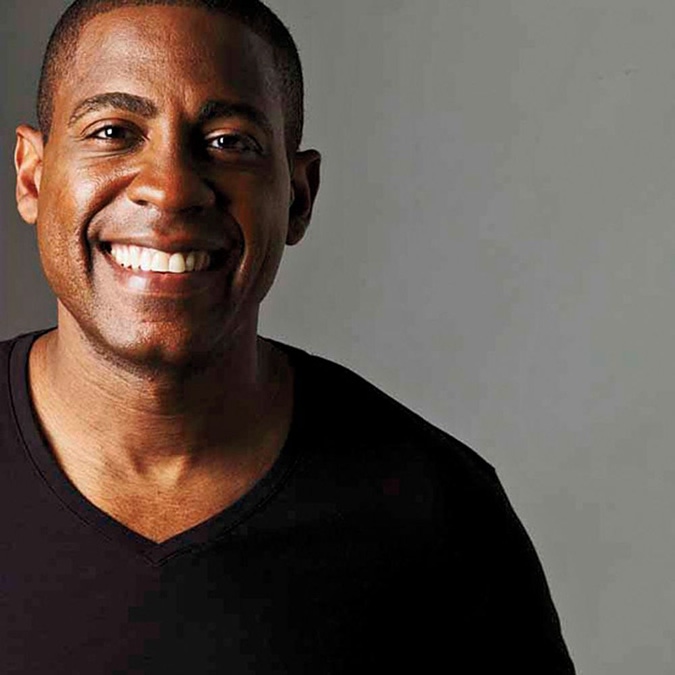 Courtesy of OZY
Courtesy of OZY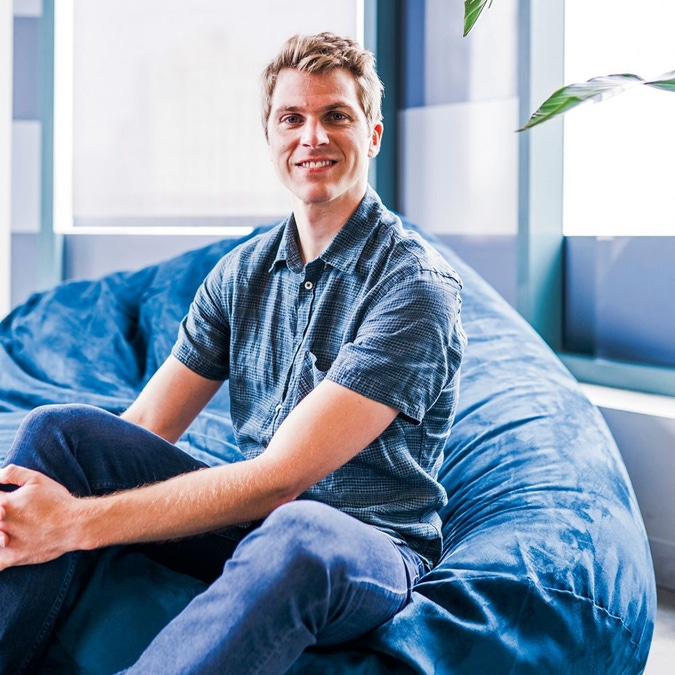 Courtesy of Airtable
Courtesy of Airtable Courtesy of Harry’s Inc.
Courtesy of Harry’s Inc.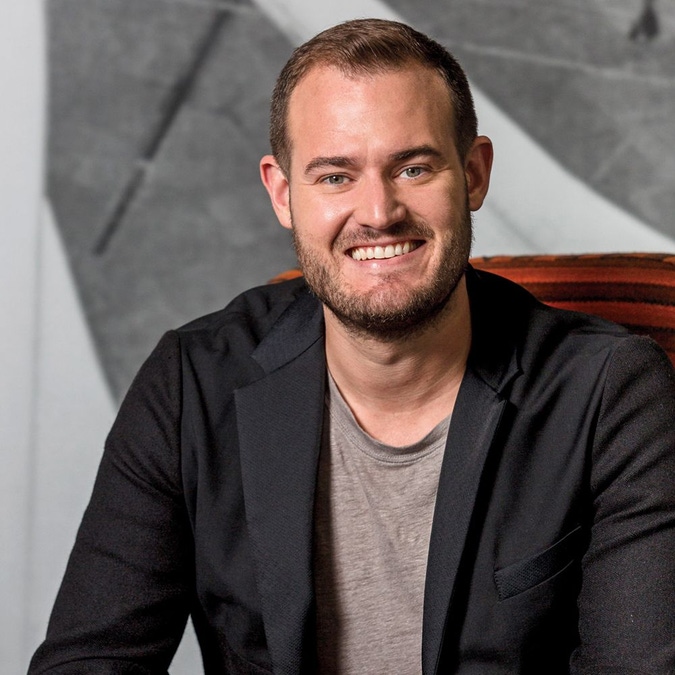 Courtesy of The Points Guy
Courtesy of The Points Guy Courtesy of Almond Board of California
Courtesy of Almond Board of California Kristen Kilpatrick
Kristen Kilpatrick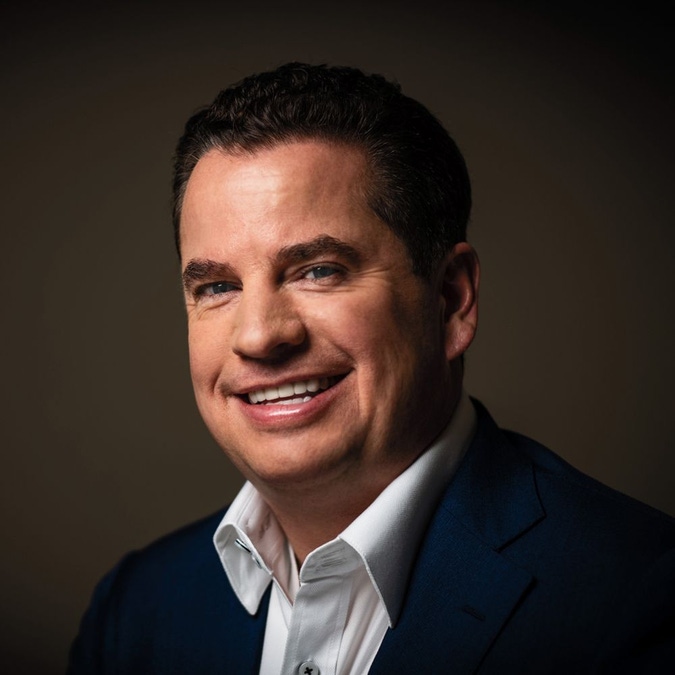 Courtesy of RSE
Courtesy of RSE











